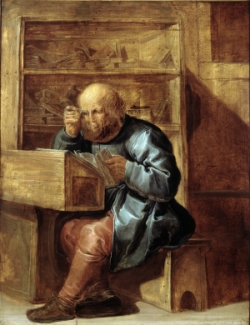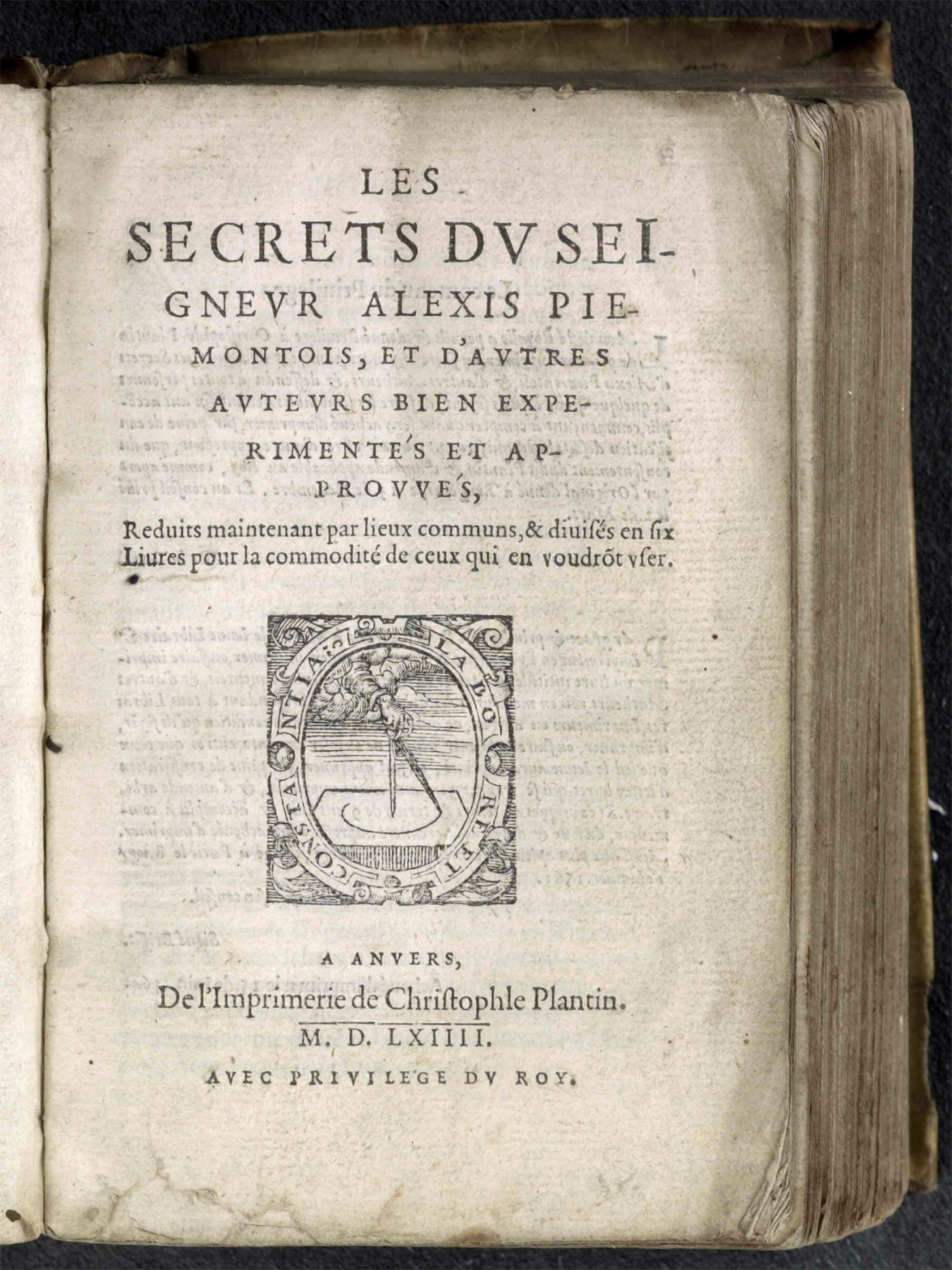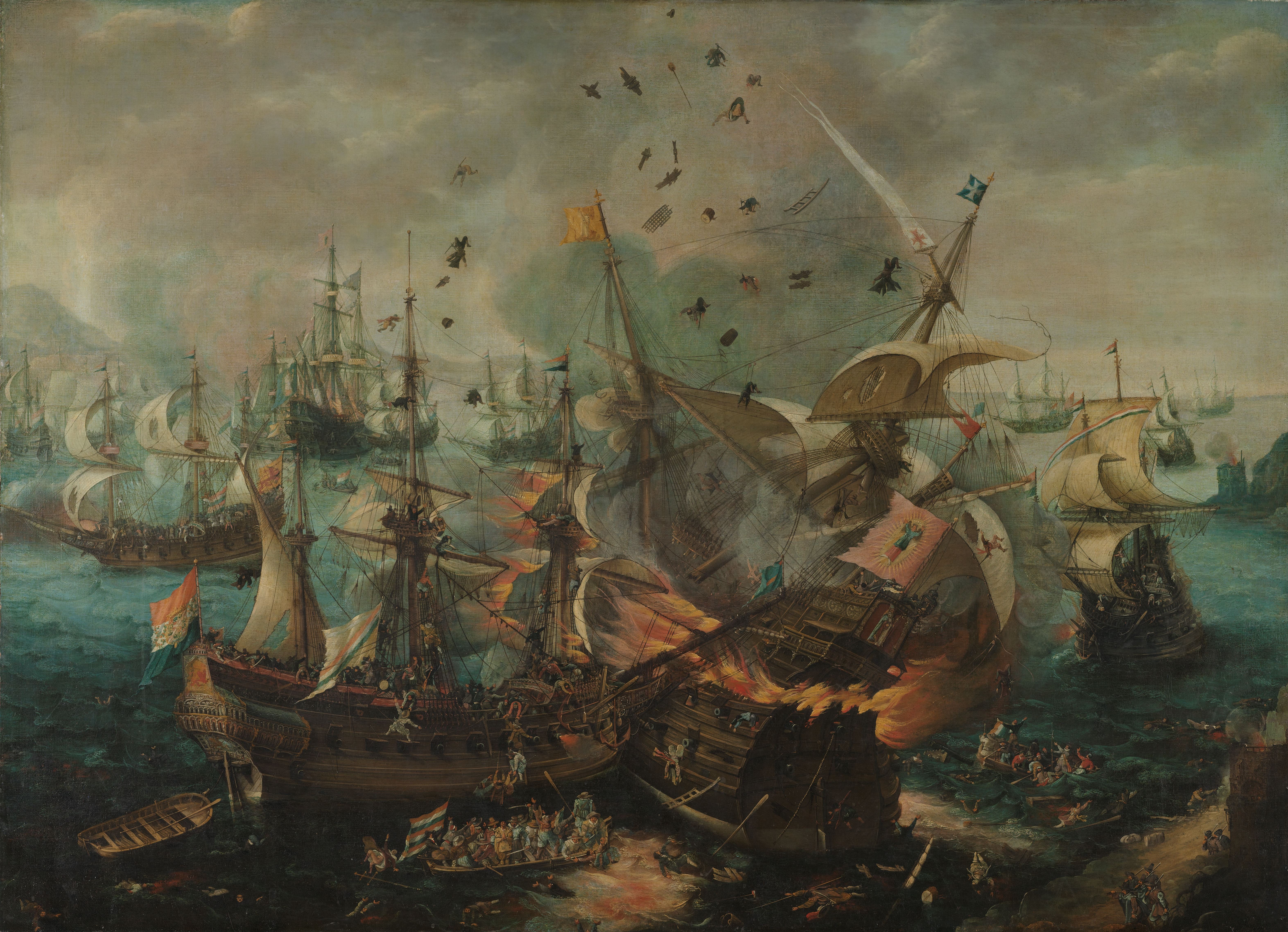|
Cornelis Kiliaan
Cornelis Kiliaan (1528, Duffel – 1607, Antwerp), was a 16th-century lexicographer, linguist, translator and poet of the Southern Netherlands. Biography He was born in Duffel between 1528 and 1530. His parents, Anna and Hendrick van Kiele Rechtstraets, were wealthy citizens of Duffel. His father died when he was still a child. In 1548, he went to study Latin, Greek and Hebrew at University of Louvain, where he later taught law. After his studies, he found a job in the printshop recently founded by Christophe Plantin, which grew to become the largest in Europe of that period. He started at the bottom as a typographer and printer, but he was promoted to first assistant in 1558. Plantin was clearly confident in the quality of Kiliaan because in 1565, he was appointed proofreader, a function reserved for scholars. Perhaps it helped that after his mother died in 1564, the whole of the family wealth passed into Kiliaan's hands, leaving him free of financial worries and allowing him ... [...More Info...] [...Related Items...] OR: [Wikipedia] [Google] [Baidu] |
Kiliaan2 , also written as Cillian, Killian, Killion
{{Disambiguation ...
Kiliaan may refer to: * 28059 Kiliaan, a main-belt asteroid named after Cornelis Kiliaan * Cornelis Kiliaan (1528–1607), a Flemish linguist See also * Kilian Killian or Kilian, as a given name, is an English language, Anglicized version of the Irish language, Irish name . The name was borne by several early Irish saints including missionaries to Artois (France) and Franconia (Germany) and the author ... [...More Info...] [...Related Items...] OR: [Wikipedia] [Google] [Baidu] |
Duffel
Duffel () is a Municipalities of Belgium, municipality in the Belgium, Belgian province of Antwerp (province), Antwerp. The municipality comprises the town of Duffel proper. On 1 January 2020, Duffel had a total population of 17,664. The total area is 22.71 km2 which gives a population density of 778 inhabitants per km2. The area is the eponym of a coarse woolen cloth, manufactured in this area from the 11th century, mainly used to make blankets, outdoor (army) coats, and tote bags. Duffel became a household name during and after World War II in the meaning of a coat designed with toggle-and-loop fastening and roomy hood. The etymology of Duffel is from "dubro" and "locus", from the Gaulish language, Gaulish ''dubrum'', ''dubron'' – "water". In 1836, the Duffel railway station opened on the Brussels-North railway station, Brussels-North to Antwerp railway line. Duffel cloth The town gives its name to a type of heavy woolen cloth generally used to make blankets and overco ... [...More Info...] [...Related Items...] OR: [Wikipedia] [Google] [Baidu] |
Antwerp
Antwerp (; ; ) is a City status in Belgium, city and a Municipalities of Belgium, municipality in the Flemish Region of Belgium. It is the capital and largest city of Antwerp Province, and the third-largest city in Belgium by area at , after Tournai and Couvin. With a population of 565,039, it is the List of most populous municipalities in Belgium, most populous municipality in Belgium, and with a metropolitan population of over 1.2 million people, the country's Metropolitan areas in Belgium, second-largest metropolitan area after Brussels. Definitions of metropolitan areas in Belgium. Flowing through Antwerp is the river Scheldt. Antwerp is linked to the North Sea by the river's Western Scheldt, Westerschelde estuary. It is about north of Brussels, and about south of the Netherlands, Dutch border. The Port of Antwerp is one of the biggest in the world, ranking second in Europe after Rotterdam and List of world's busiest container ports, within the top 20 globally. The city ... [...More Info...] [...Related Items...] OR: [Wikipedia] [Google] [Baidu] |
Christophe Plantin
Christophe Plantin (; – 1 July 1589) was a French Renaissance humanist and book Printer (publisher), printer and publisher who resided and worked in Antwerp. He established in Antwerp one of the most prominent publishing houses of his time, the Plantin Press. It played a significant role in making Antwerp a leading centre of book publishing in Europe. The publishing house was continued by his successors until 1867. Life Plantin was born in France, probably in Saint-Avertin, near the city of Tours, Touraine. He was not born to a wealthy family, and his mother died when Plantin was still quite young. As a youth he apprenticed as a bookbinder in Caen, Normandy, and also married there. In 1545, he and his wife, Joanna Rivière, set up shop in Paris, but after three years, they chose to relocate to the booming commercial centre of Antwerp, where Plantin became a free citizen and a member of the Guild of St Luke, the guild responsible for painters, sculptors, engravers and printer ... [...More Info...] [...Related Items...] OR: [Wikipedia] [Google] [Baidu] |
Dutch Revolt
The Eighty Years' War or Dutch Revolt (; 1566/1568–1648) was an armed conflict in the Habsburg Netherlands between disparate groups of rebels and the Spanish government. The causes of the war included the Reformation, centralisation, excessive taxation, and the rights and privileges of the Dutch nobility and cities. After the initial stages, Philip II of Spain, the sovereign of the Netherlands, deployed his armies and regained control over most of the rebel-held territories. However, widespread mutinies in the Spanish army caused a general uprising. Under the leadership of the exiled William the Silent, the Catholic and Protestant-dominated provinces sought to establish religious peace while jointly opposing the king's regime with the Pacification of Ghent, but the general rebellion failed to sustain itself. Despite Governor of Spanish Netherlands and General for Spain, the Duke of Parma's steady military and diplomatic successes, the Union of Utrecht continued ... [...More Info...] [...Related Items...] OR: [Wikipedia] [Google] [Baidu] |
Basic Library Of Dutch Literature
The Basisbibliotheek (Basic Library of Dutch Literature) comprises a list of 1000 works of Dutch Literature important to the cultural heritage of the Low Countries, and is published on the Digital library for Dutch literature (DBNL). Several of these works are lists themselves; such as early Dictionary, dictionaries, lists of Song, songs, Recipe, recipes, Biography, biographies or encyclopedic compilations of information such as mathematical, scientific, medical or plant reference books. Other items include early translations of literature from other countries, history books, and first-hand diaries and published correspondence. Notable original works can be found by author name. What follows is the list of the first 500 works, leading up to the early 20th century. Middle Ages Dutch Golden Age 18th century 19th century 20th century (up to 1930s) For the rest of the 20th century and works from the 21st century, see the second half of the list. See also * Dutch Literature * ... [...More Info...] [...Related Items...] OR: [Wikipedia] [Google] [Baidu] |
Cornelis Kiliaan01 (1607), inventor of the ...
Cornelis is a Dutch form of the male given name Cornelius. Some common shortened versions of Cornelis in Dutch are Cees, Cor, Corné, Corneel, Crelis, Kees, Neel and Nelis. Cornelis (Kees) and Johannes (Jan) used to be the most common given names in the Low Countries, and the origin of the term Yankees is commonly thought to derive from the term Jan-Kees for the Dutch settlers in New Netherland. Among the notable persons named Cornelis are: * Cornelis Engebrechtsz (1527), painter from Leiden * Cornelis Massijs (1556), painter from Flanders, Belgium * Cornelis Floris de Vriendt (1513/14-1575), architect and sculptor * Cornelis Cort (1578), engraver and draughtsman * Cornelis Corneliszoon Cornelis Corneliszoon van Uitgeest or Krelis Lootjes () was a Dutch windmill owner from Uitgeest who invented the wind-powered sawmill, which made the conversion of log timber into planks 30 times faster than before. [...More Info...] [...Related Items...] OR: [Wikipedia] [Google] [Baidu] |
Plantin Polyglot
The Plantin Polyglot (also called the ''Antwerp Polyglot'', the ''Biblia Regia'' or "King's Bible") is a polyglot Bible, printed under the title ''Biblia Polyglotta'' by Christopher Plantin in Antwerp (Belgium) between 1568 and 1573. History Plantin was suspected of Calvinist sympathies, although Antwerp at that time was firmly Catholic. He developed a plan to prove his loyalty to the Catholic king Philip II of Spain by producing a polyglot version of the Bible, in five languages. The king promised to finance the project — completing it nearly bankrupted Plantin — and sent the Spanish theologian Benito Arias Montano to Antwerp to watch over the production of this eight-volume of printing, which was printed in 1,200 copies on paper and 12 copies on parchment. Printing the Bible required thirteen printing presses and fifty-five men to run them, as well as expert linguists who acted as proofreaders. Description The first four volumes contain the Old Testament. The left page ... [...More Info...] [...Related Items...] OR: [Wikipedia] [Google] [Baidu] |
1528 Births
__NOTOC__ Year 1528 ( MDXXVIII) was a leap year starting on Wednesday of the Julian calendar, there is also a Leap year starting on Sunday of the Gregorian calendar. Events January–March * January 12 – Gustav I of Sweden is crowned king of Sweden, having already reigned since his election in June 1523. * January 26 – The Canton of Bern becomes the second in Switzerland to officially adopt Protestantism after 21-day debate, the Bern Disputation * February 29 – John Zápolya, ruler of the remaining eastern portion of Hungary after its the acquisition of the western section by the Habsburg Austrians, joins in an alliance with the Sultan Suleiman the Magnificent of the Ottoman Turks, receiving protection and autonomy in return for allowing Turkish occupation of his Eastern Hungarian Kingdom. * February ** Peasant uprising in Dalarna, Sweden: The rebel campaign fails, and the rebel leader, later known as '' Daljunkern'', flees to Rostock. ** Die ... [...More Info...] [...Related Items...] OR: [Wikipedia] [Google] [Baidu] |
1607 Deaths
Events January–March * January 13 – The Bank of Genoa fails. * January 19 – San Agustin Church, Manila, is officially completed; by the 21st century it will be the oldest church in the Philippines. * January 30 – Coastal flooding around Britain, probably a storm surge, including Bristol Channel floods in which a massive wave sweeps along the Bristol Channel, killing an estimated 2,000 people. * February 24 – Claudio Monteverdi's ''L'Orfeo'', the earliest fully developed opera in the modern-day repertoire, premieres at the Ducal Palace of Mantua. * March 10 – Battle of Gol in Gojjam: Susenyos defeats the combined armies of Yaqob and Abuna Petros II, which makes him Emperor of Ethiopia. April–June * April 25 – Battle of Gibraltar: A Dutch fleet of 26 warships, led by Admiral Jacob van Heemskerck, stages a surprise attack on a Spanish fleet anchored in the Bay of Gibraltar. In the battle that ensues, Spain loses as man ... [...More Info...] [...Related Items...] OR: [Wikipedia] [Google] [Baidu] |
Scholars From The Spanish Netherlands
A scholar is a person who is a researcher or has expertise in an academic discipline. A scholar can also be an academic, who works as a professor, teacher, or researcher at a university. An academic usually holds an advanced degree or a terminal degree, such as a master's degree or a doctorate (PhD). Independent scholars and public intellectuals work outside the academy yet may publish in academic journals and participate in scholarly public discussion. Definitions In contemporary English usage, the term ''scholar'' sometimes is equivalent to the term ''academic'', and describes a university-educated individual who has achieved intellectual mastery of an academic discipline, as instructor and as researcher. Moreover, before the establishment of universities, the term ''scholar'' identified and described an intellectual person whose primary occupation was professional research. In 1847, minister Emanuel Vogel Gerhart spoke of the role of the scholar in society: Gerhart argued th ... [...More Info...] [...Related Items...] OR: [Wikipedia] [Google] [Baidu] |





